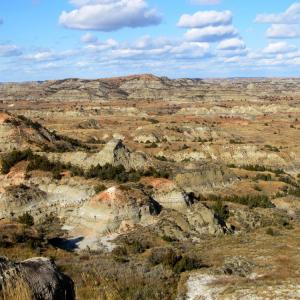NC CASC tribal partners participate in development of NIDIS' Tribal Drought Engagement Strategy for the Missouri River Basin & Midwest Drought Early Warning Systems (DEWS)
Date
NIDIS Releases Tribal Drought Engagement Strategy for the Missouri River Basin and Midwest Drought Early Warning Systems (DEWS)
In order to ensure the inclusion of indigenous perspectives in the implementation of our Drought Early Warning System (DEWS), NIDIS launched a Tribal Drought Engagement initiative in January 2019 in collaboration with the Masters of the Environment Program at University of Colorado-Boulder. The project aimed to strengthen relationships with tribal resource managers across the Missouri River Basin and Midwest DEWS regions in order to effectively deliver timely and relevant drought information.
The NIDIS Tribal Drought Engagement Strategy: 2021–2025 was developed following this project, which included a year of consultations with tribal resource managers across the two regions. These consultations helped identify critical engagement gaps and the actions that could be taken to address them. The engagement in these two DEWS will inform consultations with tribal nations as a foundation for scaling the Strategy to other regions.
Two types of information are encompassed in the Strategy. The first are a set of Guiding Principles of Engagement that capture important approaches that NIDIS wants to embody in partnerships with tribal nations. Following these principles are Key Outcomes and Activities that are organized around the five components of a DEWS (interdisciplinary research and applications; predictions and forecasting; observations and monitoring; planning and preparedness; and communications and outreach). The Strategy also provides a framework for integrating indigenous perspectives into the DEWS. Ultimately, implementation of the Strategy will lead to improved drought monitoring, forecasting, and resilience for tribal nations.
NC CASC Research Associate James Rattling Leaf, along with Doug Crow Ghost, Water Administrator, Standing Rock Sioux Nation and Syed Huq, Water Resource Director, Rosebud Sioux Nation, contributed to the development of this strategy. Doug Crow Ghost and Syed Huq are also chair and vice-chair, respectively, of the Great Plains Tribal Water Alliance, an NC CASC consortium partner.


